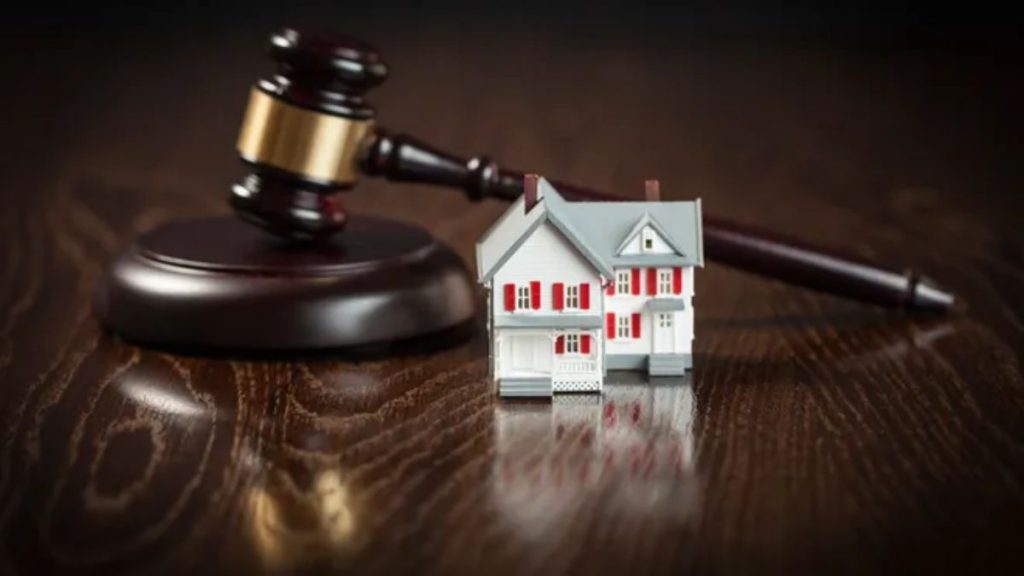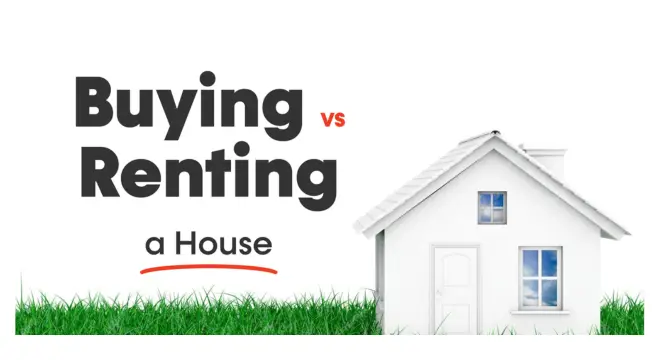Georgia Homeowner Wins $40,000 in Lawsuit Against HOA Over Unjust Fees
As a homeowner, you trust that your Homeowners Association (HOA) will act fairly and transparently. But what happens when they don’t? Michelle Bernard’s recent battle against her HOA in Channing Cove, Georgia, is a stark reminder of the power dynamics that can exist between homeowners and their associations.
When her HOA slapped a lien on her home over disputed fines, Michelle didn’t back down. Instead, she took a stand — and won a $40,000 settlement, as reported by WRDW News.
This case is more than just about a legal victory; it shines a light on the increasing power that HOAs have and the potential consequences of overreach. If you’re a homeowner, this case might make you wonder: Could this happen to me?
It also raises the important question of what recourse you have if your HOA steps out of line. In this article, we’ll dive into Michelle’s legal battle, the tactics she used, and what you can learn from her experience.
It’s not just about one woman’s fight for fairness — it’s about how we all can protect our rights against unfair practices in our communities. So, whether you’re facing a dispute with your own HOA or simply curious about the legal landscape, keep reading to learn why this case matters for homeowners everywhere.
The Dispute: Unjust Fines and Lack of Transparency

When Michelle Bernard first found herself at odds with her Homeowners Association (HOA), it wasn’t just over a minor rule violation. The fines imposed on her were excessive, and the entire situation seemed shrouded in a cloud of secrecy. As she later uncovered, the HOA had slapped her with fines for allegedly installing windows without prior approval — a fine that seemed disproportionate and poorly documented.
But what made matters worse wasn’t just the fine itself. The HOA’s handling of the situation was where things truly went off course. They failed to provide clear, itemized documentation of the fines, relying instead on vague and unclear records, such as Excel spreadsheets, which left much to the imagination.
These records lacked transparency, raising serious concerns about the HOA’s ability to justify its actions. This lack of accountability became a major point of contention in Bernard’s legal battle, as reported by The US Sun.
For homeowners, this section underscores an important lesson: transparency matters. If you’re ever faced with fines or other enforcement actions from your HOA, make sure they provide clear documentation. An HOA is obligated to be transparent, and you should hold them to that standard.
The real issue here wasn’t just about one homeowner and a small infraction. It’s about how an association with so much control over your property can make arbitrary decisions with little to no oversight. This case shows that homeowners must advocate for their rights and demand clarity and fairness from their associations.
The Lawsuit: Challenging the HOA’s Authority
Michelle Bernard’s confrontation with her Homeowners Association (HOA) began when she refused to pay fines that lacked proper documentation. The HOA had imposed fines on her and other homeowners without providing clear financial records, relying instead on vague Excel spreadsheets.
Bernard’s refusal to pay led to a lawsuit, accusing the HOA of fraudulent charges and improper modifications to its bylaws without proper procedures.
The HOA’s president, Orton Reynolds, denied any financial misconduct, stating he was unaware of any concerns about the community’s finances. Despite the HOA offering a $40,000 settlement, Bernard remained committed to holding the association accountable, emphasizing the broader impact on her community.
This case underscores the importance of transparency and accountability in HOA operations, highlighting the need for homeowners to be vigilant and assertive in protecting their rights.
The Settlement: A Win for Homeowners

After Michelle Bernard stood her ground and refused to pay the fines without proper documentation, her case quickly gained momentum. What started as a simple dispute over a window installation escalated into a landmark legal battle, eventually culminating in a significant victory for her — a $40,000 settlement from the HOA.
This win isn’t just about financial compensation; it’s about sending a message to other HOAs that homeowners can and should challenge unfair practices.
This settlement is a significant victory, not just for Michelle, but for homeowners across the country who are tired of being at the mercy of unaccountable HOA boards. Michelle’s case set a precedent, proving that homeowners have the legal recourse to stand up against unjust fines and lack of transparency in their communities.
For many, it’s the assurance that even if your HOA seems like a daunting and powerful force, the law is still on your side if you know how to fight for it.
Have you had any issues with your HOA? Whether it’s excessive fines, unclear policies, or anything else, we want to hear from you! Drop your story in the comments below — your experience could help others who are dealing with similar challenges.
Broader Impact: HOAs Under Scrutiny
Michelle Bernard’s victory reverberated beyond her own case. Across the country, homeowners are now more aware of their rights and the potential for abuse by HOAs. Her case has led to an increased awareness of the need for transparency in HOA financial dealings, and the settlement itself has sparked a wider conversation about the power of HOAs and the rights of homeowners.
In communities across the U.S., many are sharing their own horror stories of HOA overreach — from excessive fines to arbitrary enforcement of rules, and even lack of clarity in financial practices. In fact, a growing number of homeowners are now taking their disputes to court, emboldened by Michelle Bernard’s success.
Legal experts are also weighing in, suggesting that this case could lead to increased regulation of HOA practices, particularly around transparency and accountability.
The impact of Michelle’s legal victory is becoming clear: Homeowners are more willing to challenge their HOAs, and communities are pushing for reforms that make these associations more transparent and accountable. As this story unfolds, it’s clear that more legal challenges and changes in the law could be on the horizon — making it an important moment in the ongoing conversation about homeowner rights.
Don’t stay silent if you’ve faced unfair treatment from your HOA. Comment below and share how you handled the situation. Your insights can make a big difference in educating and empowering other homeowners who might be facing similar struggles. We’re all in this together — let’s talk!
Conclusion
Michelle Bernard’s case is more than just a legal battle; it’s a wake-up call for homeowners everywhere. It’s proof that standing up to unfair practices, no matter how big or intimidating the opponent may seem, can result in significant change.
If you find yourself in a similar situation, remember that you have rights, and you can take action to protect them. HOAs may wield significant power in your community, but that doesn’t mean they are above the law.
What can you learn from this case? First, always make sure that any fine or enforcement action from your HOA is documented clearly. If something feels off, don’t be afraid to ask questions or challenge decisions that seem unjust. You might not always need to go to court, but knowing your rights and how to defend them is essential. And if things escalate, like they did for Michelle, know that you don’t have to back down — legal recourse is available.
We may not all face a lien or a $40,000 lawsuit, but every homeowner needs to be aware of their rights and what steps to take if they feel wronged. You don’t have to fight alone — there are resources, legal experts, and other homeowners who can help guide you through the process.
Want to stay updated on legal rights for homeowners and tips on dealing with HOAs? Follow us to get more articles, expert advice, and real-life case studies delivered straight to your feed. Don’t miss out on the knowledge you need to protect your home!
Disclaimer: The information provided in this article is for general informational purposes only and should not be considered legal advice. For specific legal concerns, please consult a qualified attorney. The views expressed here are based on publicly available information and personal experiences shared by homeowners.



Thank you Sarah, for giving hope. This is the same issue I am facing with my HOA. This story is good to know that challenging the HOA for putting a $20k lien on my property without providing the accounting of what they’re charging me for is something I would be able to redress. They have refused to give me the billing that shows the total they are demanding and adding legal fees to my account every month without a reason or notice.
It’s been a nightmare having to deal with the HOA who is operating lawlessly adding unknown fees without notice or cause and refusing to provide the accounting of where they are coming up with their totals they are charging me.
Wondering if Michelle Bernard the homeowner in your arrival used the service of a lawyer
that she can give their information.
“The long arm of the moral universe is long, but it bends toward justice”____Martin Luther King Jr.
Thanks again for this incredible article.
Ms. McLean
Ms. McLean, thank you for sharing your experience — it truly shows how many homeowners are going through similar struggles. We’re glad this article gave you a sense of hope. If others in your community are facing the same issue, feel free to share this article with them. Stories like yours help raise awareness and push for better transparency in HOA practices.
It was told my HOA is to fix my fence .But when and told them they said you own that property you need to fix it.Not if that fence gone straight down the back of your house and everybody else to .We are getting charges much money.We don’t have a Clubhouse no swimming pool.We have to paid for service .We the community paid to get own Grass cut.Paid to get own house Pressure wash.All they do is ride around and give out fines.HOA is ripping us off.
Thank you for sharing your experience, Edwina. HOA issues like yours are more common than people think. Glad this article resonated with you.